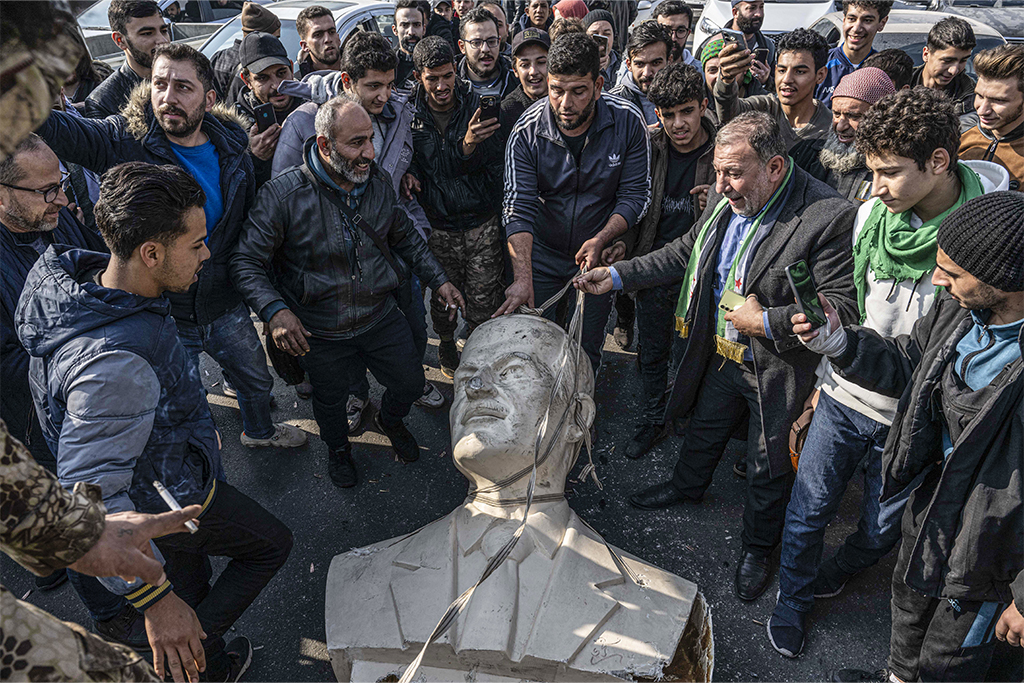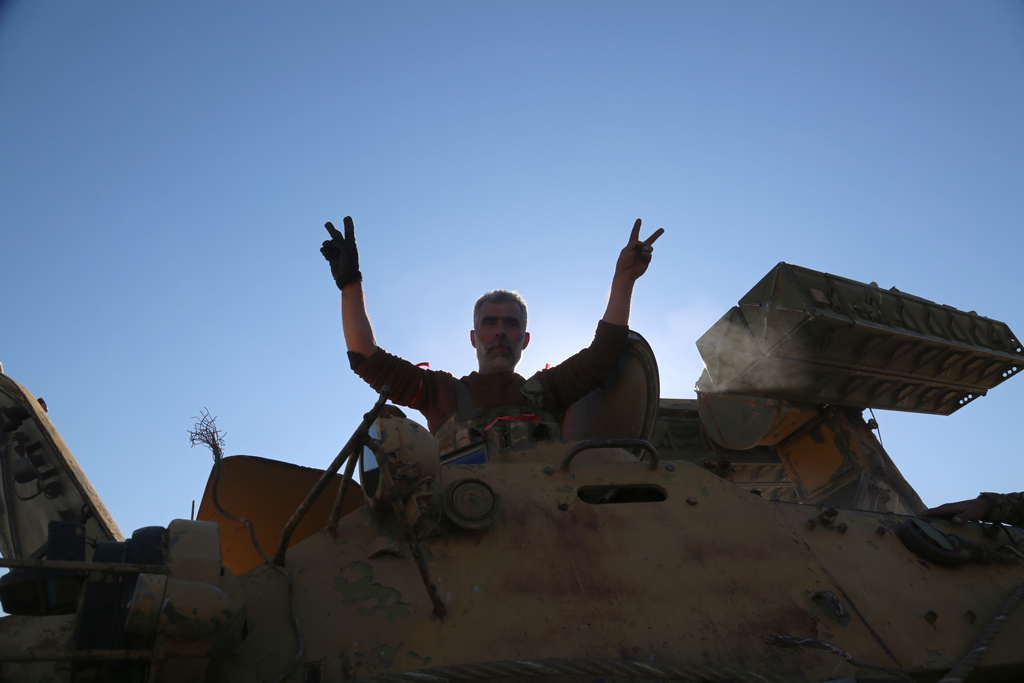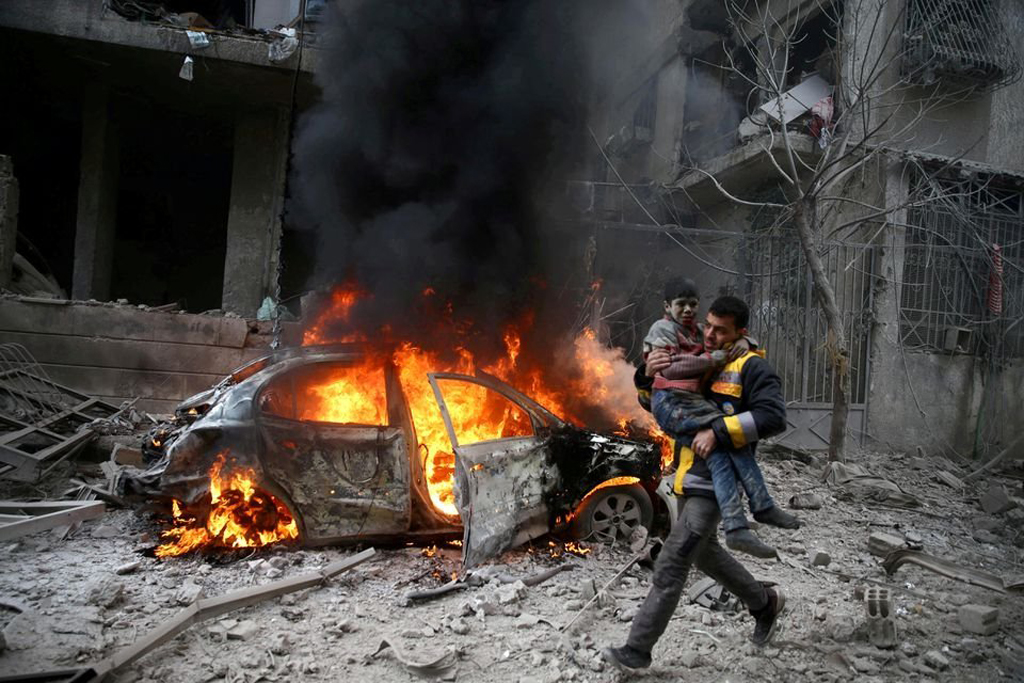The Syrian opposition coalition initiated a large-scale military operation on Nov. 27 and liberated the country from the oppressive Assad regime. Anti-regime forces led by the Hayat Tahrir al-Sham (HTS) and the Syrian National Army (SNA) entered the capital city of Damascus on Dec. 8 and overthrew the Assad regime. Assad and his family left the country for Russia, where he asked for asylum. Thus, the 61-year-long Baath regime, one of the most oppressive regimes not only in the Middle East but also in the world, has ended. From now on, the future of the country will be determined by the Syrian people.
However, the Syrian state has to overcome many hardships and challenges to provide peace and stability. It will take time to rebuild the state administration and restructure the state institutions. Regional and global actors will draw many positive or negative scenarios and projections for the country. Many experts have begun to question the future of the country, but I think Syria will not become another Iraq. Despite many foreign interventions, Türkiye will not allow chaos to prevail in the country.
First of all, the new Syrian administration should learn lessons from the cases of Afghanistan and especially Iraq. In particular, they should not repeat the mistakes of the post-Saddam Iraq. They must be careful not to destroy the current state institutions but to reform them. Although it is necessary to get rid of the Baathist security institutions such as the Mukhabarat and the army, technical state institutions must be maintained. Within this context, it is necessary to transform different armed groups into a regular army. This is one of the most critical challenges for forming a strong central government. Furthermore, Syrian political groups have already worked on a new constitution during the Genoa Process. In other words, they have already prepared some constitutional proposals for a sustainable future.
Unlike the Iraqi case, the opposition has made many preparations. The opposition groups have gained experience in governmental roles and improved their administrative capacity in the safe zone region and Idlib. Over time, they have learned how to become responsive to the demands of the people. Similarly, the NSA and the Interim Syrian Government have gained significant experience in managing the safe zone.
The political unity in the country must be protected, which was also lacking in the Iraqi case. The post-Saddam Iraqi politics were divided between two foreign powers, namely the United States and Iran. The conflictual perspectives of the two foreign powers took a long time to secure political stability in Iraq. After getting rid of the Saddam regime, the post-Saddam Iraqi government struggled to deal with the liberators, namely the U.S. and Iran. However, there are no problematic “liberators” in the Syrian case. Since most regional and global powers that are involved in the Syrian civil war have other priorities, they will not effectively influence the ongoing process in the country. Probably the most critical challenge to the fragile atmosphere in the country is Israel. It will try to benefit from the latest fait accompli in the region.
Considering that the main actor behind the opposition was Türkiye, which has been supporting the territorial integrity and political independence of the country, it will not be easy to destabilize the country. For instance, through both governmental and nongovernmental institutions, Türkiye has provided humanitarian support to the mainstream opposition groups.
Türkiye has worked hard to maintain harmony among certain Syrian opposition groups for the last several years. It is clear that Türkiye will continue to play a constructive role in the country since, unlike Iran, it does not follow a sectarian policy toward the country. It will ask the new administration to embrace all segments of the country's society. The leaders of the new administration have met the expectations and repeatedly stated that they would treat segments of society equally. Unlike Iran, Türkiye does not exclude any relevant political groups and does not follow a sectarian policy.
Finally, it is necessary to remember the Turkish role throughout the civil war. Türkiye was the only relevant country that continued to support the Syrian opposition groups. It provided huge humanitarian support not only to the Syrians living within Türkiye but also to those living in the safe zone and the Idlib province. It cooperated with the SNA troops to govern the safe zone region. It continuously provided diplomatic support on international platforms. Probably most importantly, after socializing with Türkiye, the opposition has learned how to rule the country. Türkiye, who paid high prices both in domestic politics and in its foreign relations, will continue to play a constructive role in the country.
[Daily Sabah, December 11, 2024]









